Catalogue of Technical Solutions for Sustainable Cooling in Jordan
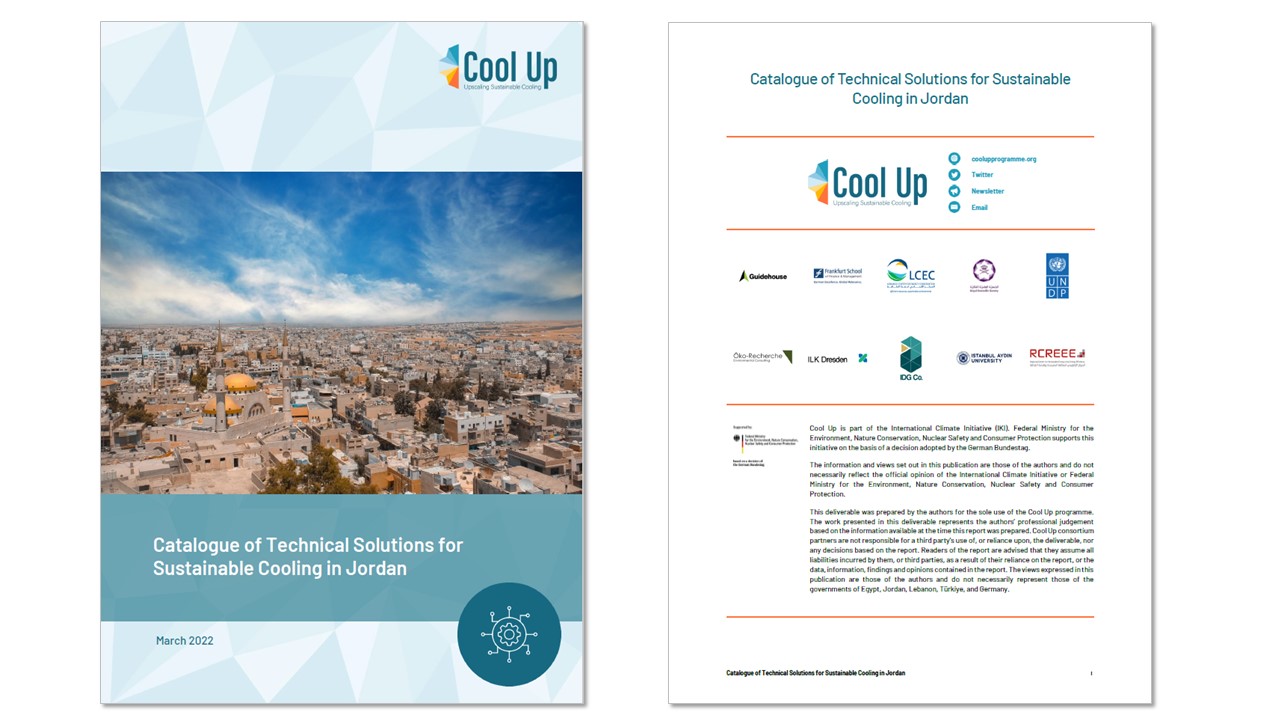
Information and resources
From reports to training materials and presentations to snapshots, the Cool Up programme will develop and share a wealth of resources with the aim of raising awareness about sustainable cooling. This knowledge base serves as a one-stop-shop and searchable database of these materials. Be sure to come back as we will continue to add materials over time.

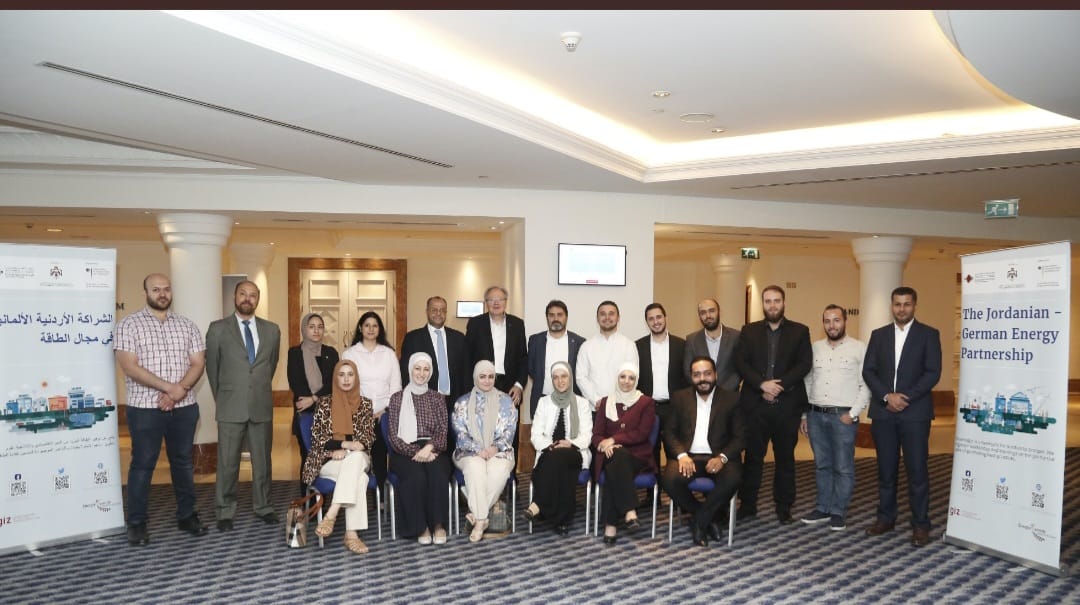
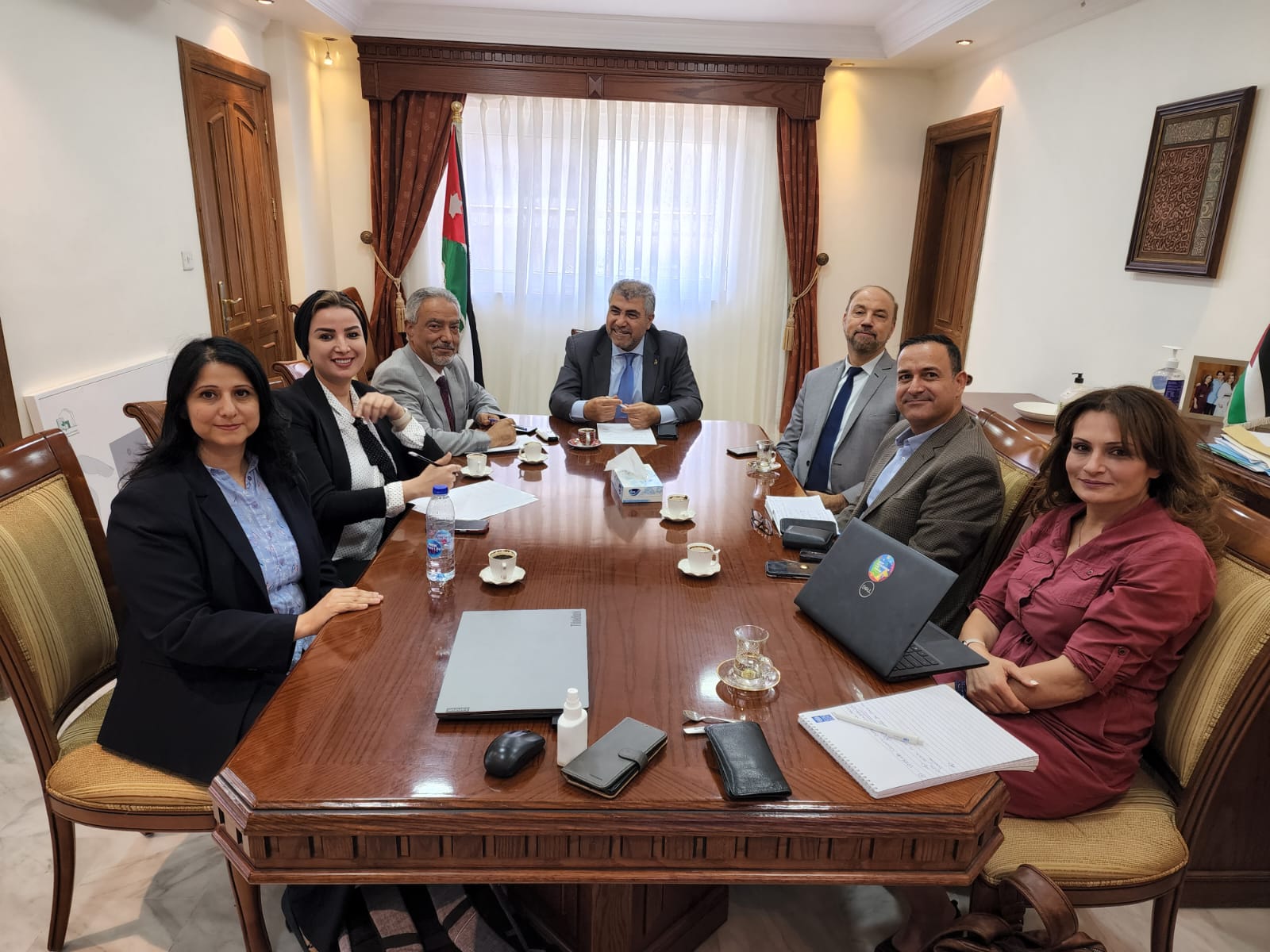
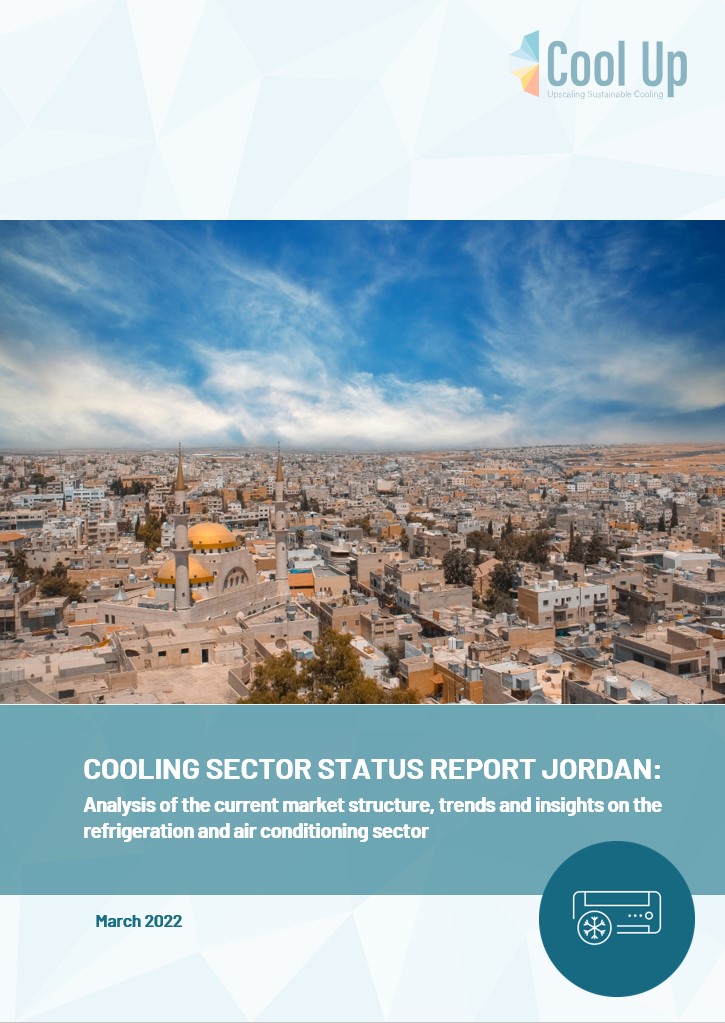
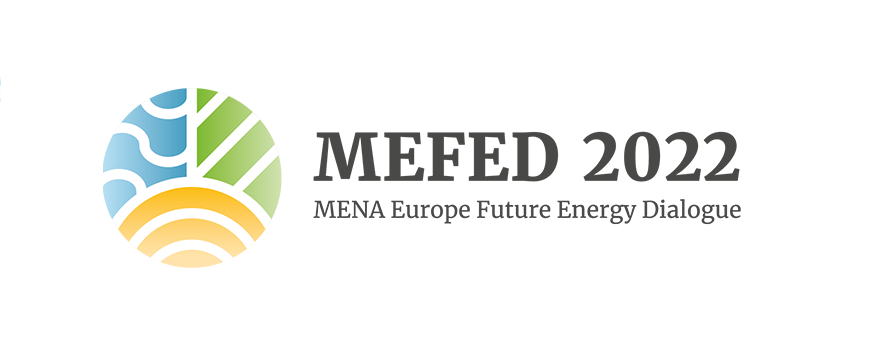


In the Cool Up newsletter we share regular updates from the programme, information about natural refrigerants and sustainable cooling, and implementation of the Kigali Amendment, as well as related news and developments from Egypt, Jordan, Lebanon and Türkiye. You can find our newsletter archives in our Knowledge Base.